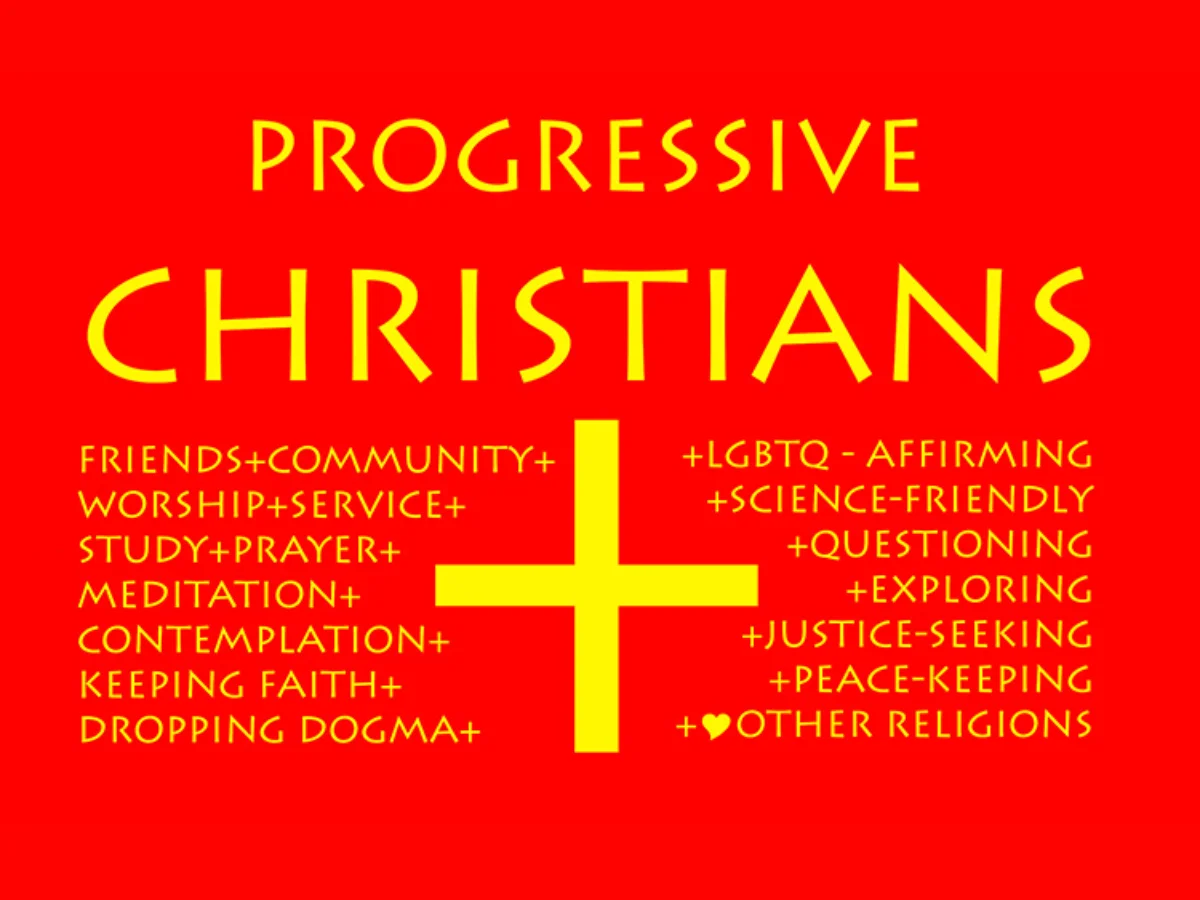Christianity is a diverse faith with various interpretations and beliefs, and two movements that often generate discussion and debate within the Christian community are Liberal Christianity and Progressive Christianity. In this article, we’ll delve into the distinctions between these two theological perspectives, exploring their core beliefs, approaches to scripture, social issues, and more.
Introduction
Christianity has evolved over the centuries, leading to various interpretations and theological movements. Two of these movements, Liberal Christianity and Progressive Christianity, share some commonalities but also have distinct differences. This article aims to clarify those differences and provide insight into their theological foundations.
Defining Liberal Christianity
Liberal Christianity is characterized by its openness to modernity and its willingness to adapt traditional Christian beliefs to contemporary thought. It often embraces a more metaphorical interpretation of scripture and emphasizes intellectual exploration. Liberal Christians may question the literal truth of certain biblical stories and tend to be inclusive and accepting of diverse theological views.
Defining Progressive Christianity
Progressive Christianity is a movement that seeks to adapt Christian beliefs to align with progressive social values and contemporary issues. While it shares some similarities with Liberal Christianity, Progressive Christianity places a strong emphasis on social justice, inclusivity, and the pursuit of peace. It often engages with challenging theological questions while advocating for social change.
Theological Beliefs
4.1 Scripture
- Liberal Christianity: Takes a more metaphorical and symbolic approach to scripture, emphasizing its moral and ethical teachings rather than literal historical accuracy.
- Progressive Christianity: Views scripture as a dynamic and evolving text, open to reinterpretation in light of contemporary insights and social progress.
4.2 Salvation
- Liberal Christianity: Focuses on personal growth and moral development, often emphasizing the teachings of Jesus as a guide to ethical living.
- Progressive Christianity: Emphasizes salvation as both personal transformation and social justice advocacy, aligning with the teachings of Jesus regarding love, compassion, and inclusivity.
4.3 Doctrine
- Liberal Christianity: Tends to be more flexible regarding traditional Christian doctrines, often allowing for a wide range of theological perspectives within the faith.
- Progressive Christianity: Questions and reevaluates traditional doctrines, seeking to align them with modern understandings and social justice imperatives.
Social Stances
5.1 Inclusivity
- Liberal Christianity: Values inclusivity and often welcomes individuals from diverse backgrounds, including those with different religious or non-religious beliefs.
- Progressive Christianity: Places a strong emphasis on inclusivity, actively working to dismantle barriers related to race, gender, sexual orientation, and more.
5.2 LGBTQ+ Rights
- Liberal Christianity: Generally supportive of LGBTQ+ rights and inclusion within the church.
- Progressive Christianity: Advocates for full LGBTQ+ inclusion, including the ordination of LGBTQ+ clergy and performing same-sex marriages.
5.3 Social Justice
- Liberal Christianity: Engages with social justice issues but may not always prioritize them as a central focus of faith.
- Progressive Christianity: Puts social justice at the forefront of its mission, working actively to address issues such as poverty, racism, environmental concerns, and human rights.
Worship and Tradition
- Liberal Christianity: Often blends traditional forms of worship with contemporary elements, striving for a balance between tradition and relevance.
- Progressive Christianity: May incorporate a wide range of worship styles, from traditional liturgy to more innovative and experiential forms of worship.
Interpretation of Jesus
- Liberal Christianity: Views Jesus as a moral and ethical teacher whose teachings serve as a guide for ethical living.
- Progressive Christianity: Emphasizes Jesus’ teachings on love, compassion, and justice, often seeing Jesus as a model for social activism and advocacy.
Comparison and Contrast
While both Liberal Christianity and Progressive Christianity share a commitment to reinterpreting Christian beliefs in light of contemporary insights, Progressive Christianity stands out for its explicit emphasis on social justice and inclusivity. It actively seeks to address pressing societal issues and advocates for a more inclusive and compassionate world.
Conclusion
The distinctions between Liberal Christianity and Progressive Christianity reflect the evolving nature of faith in response to the changing world. While both movements embrace modernity and open-mindedness, Progressive Christianity takes a more proactive stance on social justice and inclusivity.
As individuals explore their own faith journeys, these movements offer alternative paths for engaging with Christianity in a way that resonates with their values and convictions.
FAQs
10.1 Is Progressive Christianity the same as Liberal Christianity?
No, while there are similarities, Progressive Christianity places a stronger emphasis on social justice and inclusivity compared to Liberal Christianity.
10.2 Are both movements widely accepted within mainstream Christianity?
Acceptance varies within different Christian denominations and communities, with some embracing these movements and others remaining more traditional.
10.3 Can someone be both a Liberal and Progressive Christian?
Yes, some individuals may hold beliefs that align with both movements, finding a balance between tradition and social progress.
10.4 How do these movements impact the future of Christianity?
They challenge traditional interpretations of Christianity and encourage a more inclusive, socially engaged, and adaptable faith.
10.5 Are there prominent figures associated with each movement?
Yes, various theologians, pastors, and authors have contributed to both Liberal and Progressive Christian thought, including figures like Marcus Borg, John Shelby Spong, and Diana Butler Bass.
Read More: https://www.rozyjos.com/
More Related:
How to Tell if Video is Interlaced or Progressive
Is Progressive Direct Cheaper Than Through an Agent?
Is it Cheaper to Buy Car Insurance Online or Through an Agent?
Does Progressive Cover U-Haul?
Does U-Haul Insurance Cover Damage to Other Vehicles?

